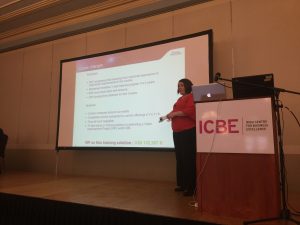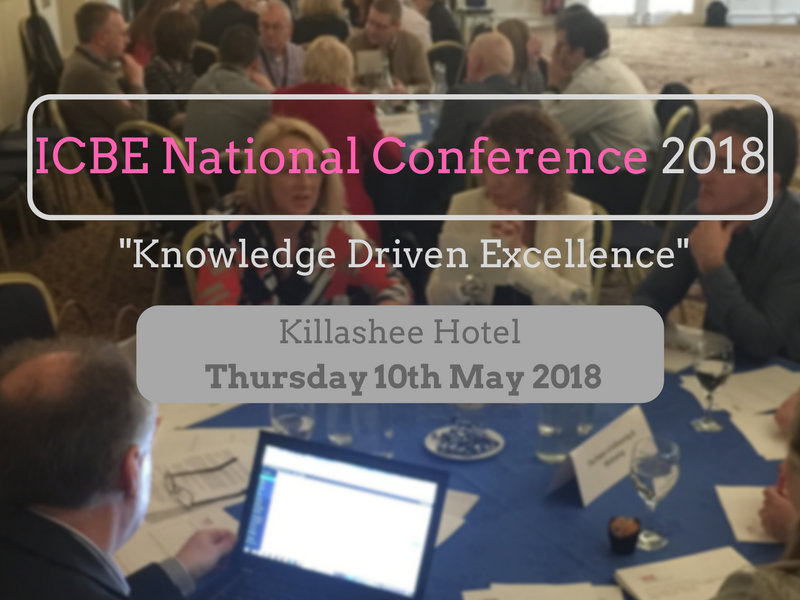 Siobhan Geary Boston Scientific Clonmel. Developing internal talent to meet the challenging needs of the business.
Siobhan Geary Boston Scientific Clonmel. Developing internal talent to meet the challenging needs of the business.
“How much does it cost to hire an employee?” was the opening statement by Siobhan Geary from Boston Scientific, before informing attendees that the average cost is €22-34,000. This is based on the average industrial wage of 45k with the cost ranging from 50 to 70% of the employees first year salary.
“This should be a motivating factor” to develop your internal talent.
In 2010 Siobhan needed to recruit Lean and Operational Excellence personnel but initial job searches came back empty handed. As a stop gap solution, they developed a lean associate role from the operator population and in 2013 decided they needed to standardise the training and upskill these Lean Associates.
Siobhan developed a long list of skills and competencies based on shareholder involvement that were needed. In conjunction with their training department she developed a 12 module programme which including experiential learning.
The initial shock was that the programme would have resulted in 218 hours of classroom time and 476 hours of experiential training. This would have meant taking resource out of the company for 6 months, when its staffing was already stretched.
Outside of the business concerns was the employee motivation, how to define and put together a good value proposition to meet the ‘What’s in it for me?’ These employees already had the job, were getting good feedback and in essences this course was not going to provide any additional opportunities. The employee after all this training would be returning to their original roles.
In Boston Scientifics highly, regulated world qualifications and accreditation are necessary for compliance for these employees to take on other positions.
Siobhan set on the task to see if she could find a body that would accredit this training.
Her feeling was it could be level 7 training. While searching for an accrediting body she still needed to build support for the concept and course with the organisation. To build a compelling vision she created a framework to visualise and contextualise the horizontal integration and vertical alignment of the program to the organisation reflecting how people could fit and move within the organisation.
Then she brought in some different stakeholders within various functions of the company from supply chain, quality, to engineering to help build support and momentum in the program. The feedback was they also had excellent people in each group but they did not have the qualification to advance. They requested an education solution that would meet both the Lean/Op ex needs but also there’s.
This recognition of a bottleneck of talent who are not lacking in capability but rather academic qualification prevents them from moving up in the organisation, required a broader ranging and higher academic solution then originally scoped.
Together with Siobhan, John O Riordan from the training department reached out to the Institute of Industrial Engineering, Tim Byrne and Skillnet, Victoria Wilmott organised a group meeting with other companies in the region to share the problem and potential solutions. Fortunately WIT were present in the form of Darrin Taylor and Aidan Walsh from the Business School, they responded with a Level 7 Lean Fundamental program and a Level 8 Higher Diploma in Operational Excellence programme that covered lots of the key skills and competencies that the business needed.
The real game changer was that WIT would recognise prior learning, industry expertise, as a qualifying factor for the programme. The intense programme (1 year) was easier for employees to commit too and the program structure with direct face time with lectures made it a lot easier for those employees who did not have previous formal 3rdlevel education to settle into the courses. Skillnets also supported the program by providing 20% funding.
As part of the programme Siobhan linked a Value Improvement Project worth €50,000 as an expectation to anyone who successfully applied for the course. The purpose of this was to provide an opportunity to practice the project management element of the course in the business environment and generate a return on investment for the organisation.
The results of the programme have been exception with 53 successful graduates by 2018, 70% of these employees have been promoted, with a further 16 enrolled this year. Feedback from the graduates have been really positive. Programme directors Darrin Taylor and Aidan Walsh also providing glowing references about our employees and how this program is an example of Global Best Practice of academic and industry collaboration.
The business impact of the programme and over past year $8.7 million worth of projects loaded to the VIP system which includes the saving of over $300k on the course cost alone.
Finishing up her presentation Siobhan compared the potential hiring cost for those 37 promoted employees of €1.2 million versus the €220k spent on their education. This represents a 5 times return on investment alone, not to mention the 30X return on the investment based on the $8.7 m worth of projects delivered.
